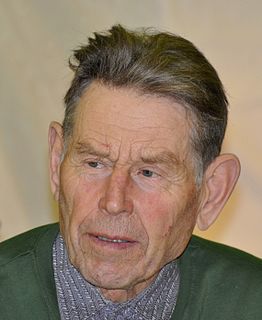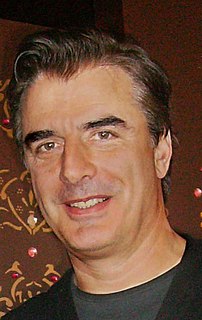A Quote by Scott Westerfeld
"Clear-cutting" was the word for what the Rusties had done to the old forests: felling every tree, killing every living thing, turning entire countries into grazing land. Whole rain forests had been consumed, reduced from millions of interlocking species to a bunch of cows eating grass, a vast web of life traded for cheap hamburgers. "Look, we're not clear-cutting. All we're doing is pulling out the garbage that the Rusties left behind,” David said. "It just takes a little surgery to do it."
Quote Topics
Been
Behind
Bunch
Cheap
Clear
Consumed
Countries
Cows
Cutting
David
Doing
Done
Eating
Entire
Every
Forests
Garbage
Grass
Grazing
Had
Hamburgers
Just
Killing
Land
Left
Left Behind
Life
Little
Living
Living Thing
Look
Millions
Old
Out
Pulling
Rain
Reduced
Said
Species
Surgery
Takes
Thing
Traded
Tree
Turning
Vast
Web
Web Of Life
Whole
Word
Related Quotes
Virtually, Finnish woods are stripped so bare, so sold out and first and foremost, so long way off from genuine diverse natural forest, that the resources of language will not permit excessive words. Finnish forest economy has been compared to the ravaging of rain forests. Nevertheless, the noteworthy difference is that there is a half or two thirds left from rain forests, but from Finnish forests there is left - excluding arctic Lapland - 0,6 per cent.
Just a little rain falling all around The grass lifts its head to the heavenly sound Just a little rain, just a little rain What have they done to the rain? Just a little boy standing in the rain The gentle rain that falls for years And the grass is gone and the boy disappears And the rain keeps falling like helpless tears And what have they done to the rain? Just a little breeze out of the sky The leaves nod their heads as the breeze blows by Just a little breeze with some smoke in its eye And what have they done to the rain?
Spraying to kill trees and and raspberry bushes after a clear-cut merely looks unaesthetic for a short time, but tree plantations are deliberate ecodeath. Yet, tree planting is often pictorially advertised on television and in national magazines by focusing on cupped caring hands around a seedling. But forests do not need this godlike interference... Planting tree plantations is permanent deforestation... The extensive planting of just one exotic species removes thousands of native species.
Global warming, along with the cutting and burning of forests and other critical habitats, is causing the loss of living species at a level comparable to the extinction event that wiped out the dinosaurs 65 million years ago. That event was believed to have been caused by a giant asteroid. This time it is not an asteroid colliding with the Earth and wreaking havoc: it is us.
It was, as I have said, a fine autumnal day; the sky was clear and serene, and nature wore that rich and golden livery which we always associate with the idea of abundance. The forests had put on their sober brown and yellow, while some trees of the tendered kind had been nipped by the frosts into brilliant dyes of orange, purple, and scarlet.
My personal background is actually very unusual for the kind of career I chose. I didn?t meet anyone who had ever done physics in my life. I grew up in the Himalayan forests. My father was a forest conservator, which meant that if I wasn?t in school I was in the forests with him. That has been very largely responsible for my ecological inclinations.
When cattle ranchers clear rain forests to raise beef to sell to fast-food chains that make hamburgers to sell to Americans, who have the highest rate of heart disease in the world (and spend the most money per GNP on health care), we can say easily that business is no longer developing the world. We have become its predator.
If you had your way you’d pass a law to abolish all the little jobs, the little things. But then you’d leave yourselves nothing to do between the big jobs and you’d have a devil of a time thinking up things to do so you wouldn’t go crazy. Instead of that, why not let nature show you a few things? Cutting grass and pulling weeds can be a way of life, son.
My father had been a forester and I had grown up on those hills. I had seen forests and streams disappear. I jumped into Chipko movement and started to work with the peasant women. I learned from them about what forests mean for a rural woman in India in terms of firewood and fodder and medicinal plants and rich knowledge.
It was only after a while, after photographing mines and clear-cutting of forests in Maine, that I realized I was looking at the components of photography itself. Photography uses paper made from trees, water, metals, and chemistry. In a way, I was looking at all these things that feed into photography.

































